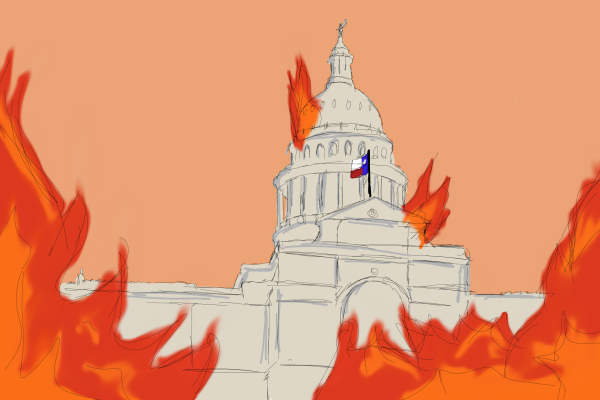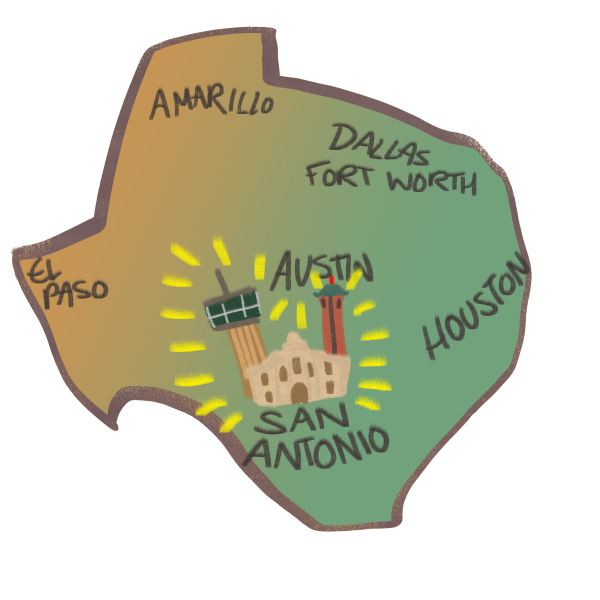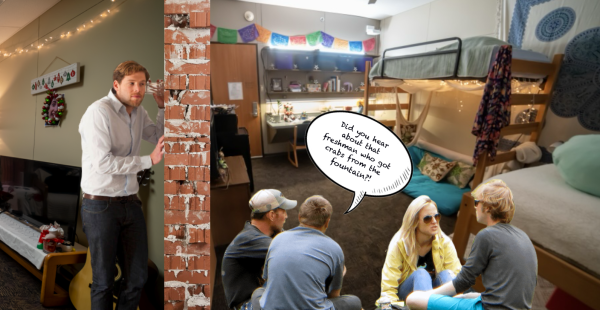Drilling our own grave
Approval of the Willow Project is a missed opportunity to do better
Over spring break on March 13, President Joe Biden made a decision that would impact the future of millions. His approval of the Willow Project, an oil drilling venture proposed by ConocoPhillips, goes against his 2020 campaign promise to end new oil and gas drilling on public lands. Biden’s decision has attracted much controversy, especially with the projected environmental implications the Willow Project may cause over the course of the coming decades. Though I’m disappointed and frustrated like so many others, I am not surprised.
The weight of the Willow Project lies in its timeline; it’s currently slated as a decades-long drilling venture in Alaska’s National Petroleum Reserve, an area owned by the federal government. ConocoPhillips is currently the only company that has been granted permission to drill at this site and seeks to produce up to 600 million barrels of oil over the course of the project’s duration. However, it would be years before any of that oil is seen on the market because the project is still in its infancy and construction has yet to begin.
Had the Willow Project’s start date been at a time when taking environmental action wasn’t so crucial, maybe it would be less controversial. To be blunt, the consequences of Biden’s approval will not be felt in his lifetime, but they will be in ours. An estimated 9.2 million metric tons of carbon emissions a year will be released from the drilling activity of the Willow Project. 9.2 million. That’s one more number to fight against, and I think we can agree that it’s a hell of an uphill battle.
The Biden administration’s current climate goals aim to reduce greenhouse gas emissions 50% below the levels in 2005 by 2030 and to reach 100% carbon pollution-free electricity generation by 2035. While the U.S. is making progress toward these goals, it seems counterproductive to greenlight another fossil fuel project that will undoubtedly disrupt that progress. Despite Biden’s undeniable contributions towards green energy accessibility and infrastructure, namely through the Inflation Reduction Act and his promotion of the Global Methane Pledge, I think many are underestimating the potential impacts of the Willow Project on the progression of climate change.
Some of the appeals behind the Willow Project comes from the localized production of fossil fuels. Compared to some of its competitors, the U.S. has environmental regulations that are quite strict, which makes the production of oil a cleaner and more environmentally friendly process than importing oil from suppliers that don’t share our American standards. However true this might be, the production of fossil fuels still very clearly contributes to climate change, and there’s no denying that.
The production of such a surplus of oil will only result in further use of fossil fuels, and as a result, more emissions of greenhouse gasses into the atmosphere. Having this production timeline extend into a future where we’re supposed to be weaning ourselves off of nonrenewable energy will only hurt our efforts to be more sustainable.
In addition to the catastrophic levels of emissions set to be released as a result of the Willow Project, there are also the matters of habitat disruption and Indigenous rights in the areas close to the drilling site. The Nuiqsut community has vocalized concerns about health and environmental impacts from the construction and production of Willow due to their proximity. Furthermore, the necessary infrastructure to transport oil could impact the migration patterns of native fauna like caribou, wolves and birds, and ecological disruption like that would then affect the Nuiqsut population’s ability to maintain themselves.
Biden’s approval of the Willow Project is a missed opportunity for climate action at a time when it’s vital. Yes, there are plenty of obstacles to overcome in a decision like this, not just environmental implications. Yes, there will be economic cushions for the U.S. down the line, but unless we are willing to change our practices of fossil fuel consumption, that economic boon will be short-lived. Yes, we’re doing things to address climate change, but we aren’t doing enough and that should scare you.

My name is Ava Peinhardt (she/her), and I'm the Opinions Editor for the Trinitonian. I'm a senior from Plano, TX majoring in Environmental Studies with...











northern native • Apr 6, 2023 at 10:30 pm
I suggest you give up just about every product you use in your daily life as most products you use is made from petroleum. Did you k ow it takes petroleum to make tires for you your EV cars and whatever plastic is inside them? Most likely not. And did you know that mining will do more harm to the environment than drilling will? And did you know that it is most likely children in poorer countries will do the mining for them? Let me know how you giving up just about your daily routine effects you and how it went as most are products of petroleum I am glad this project got approved I am from this area and it will give me access to hunting and fishing grounds that I did not have access to before. I could careless about the money it brings because that it just a tool as anything else so please do not speak on my behalf when you haven’t the slightest clue to how things work. We are far away from.moving away from fossil fuels as the world runs on fossil fuels. Mining for your batteries for your EV cars will do more damage to the environment no doubt. Let alone disposing of them properly is harder than you think as we don’t not have any feasible way of recycling them. So educate yourself and get a better understanding